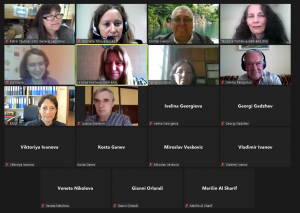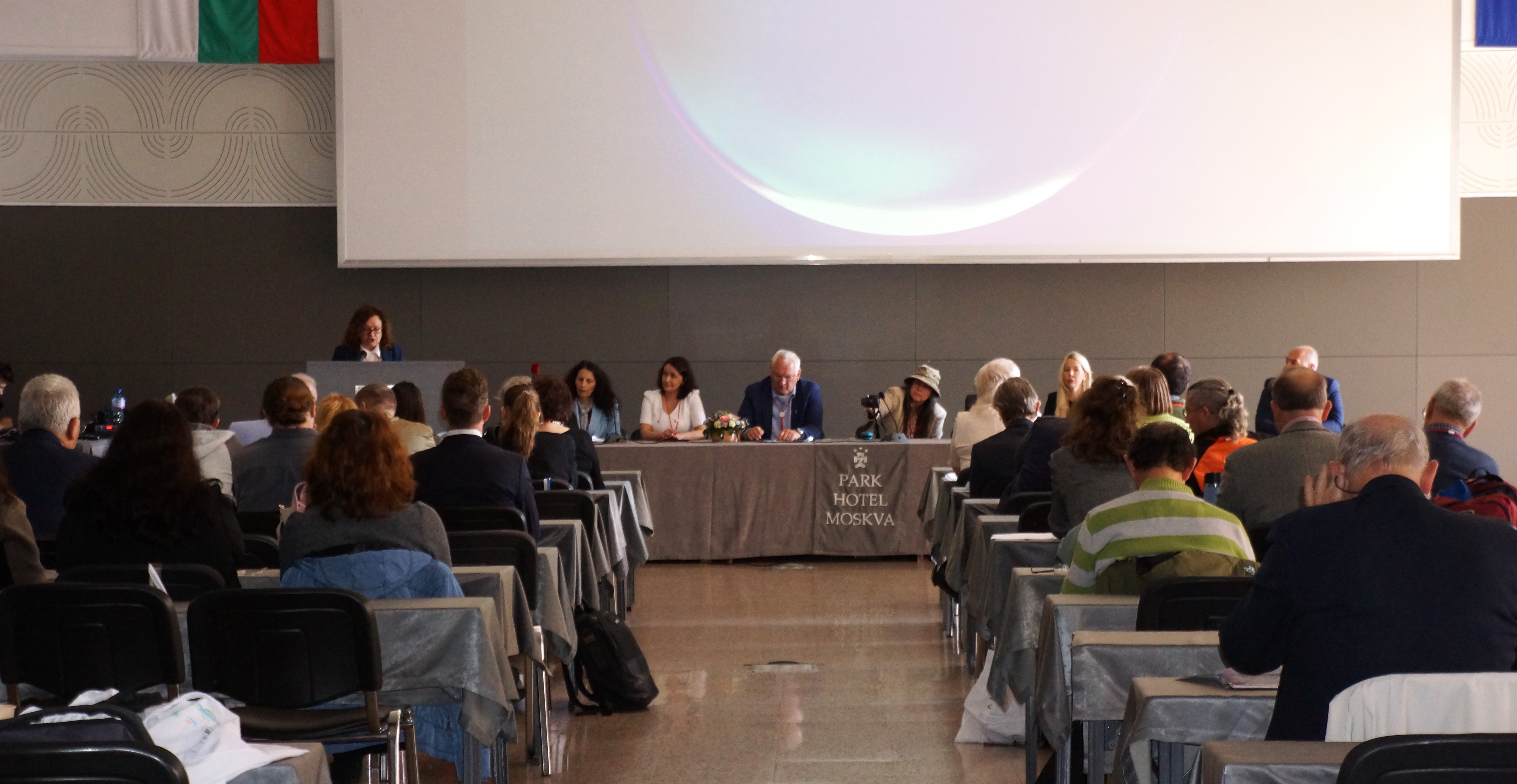
On 22 October 2021, the Bulgarian Academy of Sciences (BAS) and the European Academy of Sciences and Arts (EASA) organised the 11th Conference of the Danube Academies which took place online. The theme of the Conference was “Climate change and climate control”.
Prof. Julian Revalski, Full Member of BAS and its President, Corr. Mem. Konstantin Hadjiivanov, Deputy Minister of Education and Science, Prof. Klaus Mainzer, EASA President, and Prof. Felix Unger, EASA Honorary President, opened the conference. Mr. Florian Ballnus, Coordinator of Priority Area 6 of the EU Strategy for the Danube Region (EUSDR), welcomed the participants and highlighted the important role of academia for the implementation of the goals of EUSDR.
The President of BAS emphasized the great scientific potential of the countries of the Danube region and the importance of the Conference as a platform for exchange of knowledge and experience. Corr. Mem. Hadjivanov paid particular attention to the importance of climate change for the European agenda and the inclusion of Bulgaria in the EU policies.
The Conference was attended by scientists from BAS and Bulgarian universities, representatives of academies of sciences from the Danube region, scientists from European universities and European scientific organizations and representatives of the diplomatic corps in Bulgaria and ministries from abroad.
Main aspects discussed by the participants:
Climate change and climate control are a crucial challenge of our time. The European Academy of Sciences and Arts, by addressing the current challenges of the Danube region and border regions, can make a very tangible contribution to the digitalization of a green Europe and sustainable development. For this reason, one of the main issues discussed was the Regional Digital Education Network “for open digital education and green sustainable development”.
In the modern era, communicating climate change issues between researchers and policy makers is essential. The shared Belgian experience shows that there are no political parties or media outlets to challenge the consensus that climate change is real and requires decisive action. However, there are still important political disagreements (e.g. on the choice of technologies such as nuclear power, the urgency and timing of policy instruments). These disagreements are potentially exacerbated by new forms of soft denial that delay climate action, for example by questioning the impact of solar panels or by advancing miracle solutions such as geoengineering.
In 1971, hydrologists from the 8 Danube countries launched a regional hydrological cooperation on a voluntary basis, aiming to produce consistent hydrological information for the entire catchment of the Danube River. Since 1987, this cooperation has taken place within the framework of the UNESCO International Hydrological Programme, renamed the Intergovernmental Hydrological Programme in 2018. This programme is the result of a long-standing collaboration of a wide range of hydrologists from 11 Danube Basin countries. The cooperation provides a sound and consistent information basis for integrated water management.
How to tackle the rise in carbon dioxide which is accepted as the main cause of climate change? A team of Bulgarian scientists proposes a solution – electricity generation and industrial processes using fossil fuels can be integrated with carbon capture, use and storage technologies to reduce the impact on the environment. The transition to widespread deployment of carbon capture technologies remains particularly challenging as its financing requires a combination of strong political and financial sources.
Predicting future climate change is essential for making the right decisions and policies to mitigate climate change impacts. The analysis, based on climate indices, shows spatial patterns and dynamics of temperature and precipitation in the projected future climate of South-East Europe by the end of the century. The revealed changes of the precipitation-based indices are more complex compared to temperature changes.
Globally, floodplains are extremely sensitive areas not only in terms of biodiversity but also in terms of their ability to capture carbon, store nutrients, provide habitat and regulate climate as well as hold back floods. Wetland conservation is absolutely essential to restore lost or partially lost floodplains and to preserve those areas that still function as islands of biodiversity.
Some of the papers presented were related to the activities of the International Association for Danube Research (IAD). Established in 1956 to promote limnological research in the Danube basin, it provides a platform for cooperation and scientific exchange for aquatic research teams from countries in Western and Eastern Europe. Research topics have evolved over time from hydrological, physical, chemical and biological assessments to more integrated and complex topics such as anthropogenic impacts (e.g. climate change, freshwater biodiversity loss), ecosystem services and integrated management. Examples of this were also presented in some of the presentations – e.g. the conservation of sturgeon in the Danube, research on temperature trends and extending this to the ecosystem level. The spread of invasive alien species in the Danube region has been greatly accelerated recently due to human activities and climate change. As a result, biodiversity and ecosystems in different regions have been seriously affected and adverse socio-economic and human health impacts have been reported.
In recent years, IAD has become more involved in disseminating scientific results at the policy, conservation and environmental education levels. Danube News, IAD’s newsletter, briefly presents the key scientific activities/projects carried out in the aquatic ecosystems of the Danube basin (www.danube-iad.eu).
At the three roundtables held after each of the sessions, a number of questions were asked on the individual papers and a lively discussion took place on climate change, its prevention and control options, the introduction of green technologies and the mitigation of anthropogenic pressures on ecosystems and climate.





